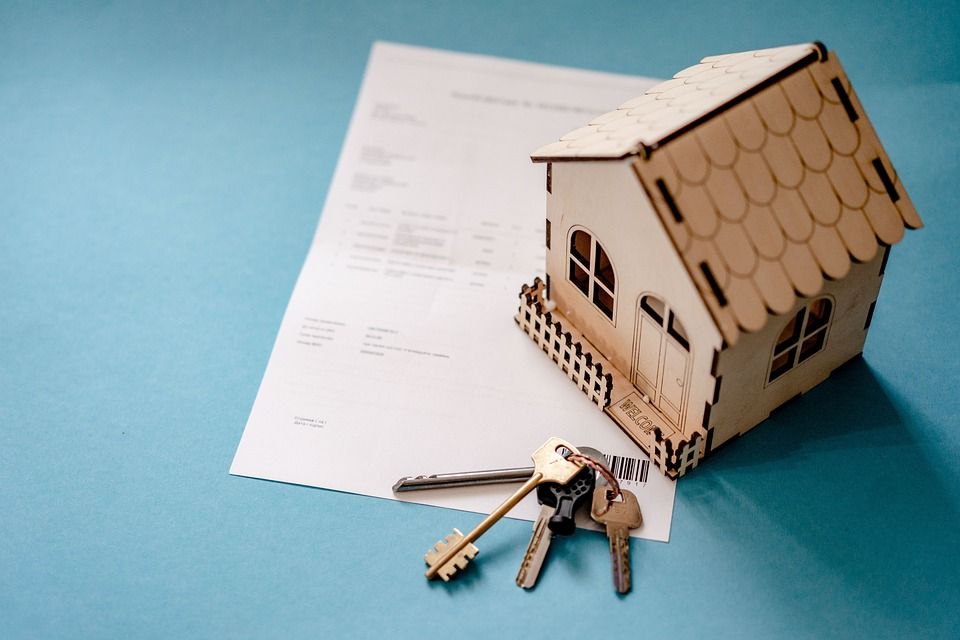Are you a first-time homebuyer looking to navigate the complex world of mortgages? Buying a home can be a daunting experience, but with the right guidance, you'll be well on your way to securing your dream property.
This comprehensive guide will help you understand the ins and outs of mortgages for first-time buyers, from the different types available to essential tips for securing the best deal.
Understanding Mortgages: The Basics
A mortgage is a loan you obtain from a lender to help finance the purchase of a home. The property itself serves as collateral, meaning the lender can repossess the home if you fail to make your payments. Mortgages are typically repaid over a set period, usually 15 to 30 years, and come with varying interest rates and payment structures.
Types of Mortgages for First-Time Buyers
There are several types of mortgages available, each with its benefits and drawbacks. Different mortgages come with varying mortgage rates as well. As a first-time buyer, it's essential to understand the differences to choose the best option for your needs:
Fixed-rate mortgage
With a fixed-rate mortgage, the interest rate remains the same throughout the loan's life. Fixed rate loans offer predictable monthly payments, making it easier to budget for your new home and are the most common mortgages for first time buyers.
Adjustable-rate mortgage (ARM)
ARMs have an initial fixed-rate period, followed by an adjustable rate that changes periodically based on market conditions. ARMs can be more affordable in the short-term, but there is the risk of rate increases over time.
Government-backed loans
Programs such as FHA, USDA, and VA loans are designed to help first-time buyers with lower down payments and credit score requirements. They can be an excellent option if you're struggling to qualify for a conventional mortgage.
Pre-approval: A Crucial First Step
Before house hunting, it's essential to get pre-approved for a mortgage. A pre-approval is a preliminary assessment of your creditworthiness by a lender, determining how much you can borrow and at what interest rate. This process helps you understand your budget, strengthens your negotiating position, and expedites the mortgage process once you find a property.
Down Payment and Closing Costs
Down Payment Assistance Programs
Saving for a down payment is often the most significant hurdle for first-time buyers. The down payment is a percentage of the home's purchase price that you pay upfront, while the mortgage covers the remaining balance. A larger down payment typically results in lower monthly mortgage payments and better interest rates. Most conventional mortgages require a 20% down payment, but government-backed loans may accept as little as 3.5%.
Closing costs are additional fees paid at the end of the mortgage process, typically ranging from 2% to 5% of the loan amount. These fees cover expenses such as title insurance, appraisal, and loan origination fees.
Mortgage Points and Interest Rates
Lenders may offer the option to purchase discount points, which are fees paid upfront to reduce your mortgage interest rate. One point typically costs 1% of the loan amount and reduces the rate by 0.25%. Purchasing points can be beneficial if you plan to stay in your home long-term and want to save on interest costs.
Mortgage Insurance and Escrow Accounts
If you make a down payment of less than 20%, you'll likely need to pay for private mortgage insurance (PMI).
Private Mortgage Insurance
PMI protects the lender in case you default on your loan and adds to your monthly mortgage payment. Once your equity in the home reaches 20%, you can request to have PMI removed.
An escrow account is a separate account managed by your lender that holds funds for property taxes and insurance premiums. Lenders often require escrow accounts to ensure these payments are made on time. Each month, a portion of your mortgage payment goes into the escrow account, and the lender pays the necessary expenses on your behalf when they come due.
First-Time Homebuyer Programs and Incentives
Many local, state, and federal programs are designed to help first-time buyers navigate the mortgage process and make homeownership more affordable. These programs can provide financial assistance through grants, low-interest loans, or tax credits. Examples include:
a. First-time homebuyer grants: These are funds you don't have to repay, as long as you meet specific requirements. They can be used towards down payments, closing costs, or other expenses.
b. Low-interest loans: Certain programs offer loans with lower interest rates than conventional mortgages, making homeownership more affordable for first-time buyers.
c. Tax credits: Some programs provide tax credits to reduce your tax liability, making homeownership more financially feasible.
To qualify for these programs, you may need to meet specific income, credit, or property requirements. Research the options available in your area and consult with a mortgage professional to determine eligibility.
Choosing the Right Mortgage Lender
Selecting the right mortgage lender is crucial in securing the best mortgage terms for your needs. It's essential to compare multiple lenders, including banks, credit unions, and online lenders, to ensure you're getting the most competitive rates and fees. Consider factors such as customer service, loan processing time, and the lender's reputation when making your decision.
Tips for First-Time Mortgage Applicants
As a first-time buyer, there are several strategies to increase your chances of mortgage approval and secure favorable terms:
a. Improve your credit score: Although there is a minimum credit score, a higher credit score often results in better interest rates and loan terms. Pay your bills on time, reduce outstanding debt, and avoid applying for new credit before seeking a mortgage.
b. Save for a larger down payment: A larger down payment can help you qualify for a mortgage with lower interest rates and monthly payments.
c. Get pre-approved: Pre-approval strengthens your negotiating position and demonstrates your seriousness to sellers.
d. Work with a real estate agent: An experienced agent can help you find a suitable property, negotiate on your behalf, and guide you through the mortgage process.
Conclusion
Mortgages for first-time buyers may seem overwhelming, but understanding the basics, researching available programs, and working with knowledgeable mortgage lenders can ease the process. By following the guidance provided in this article, you'll be well on your way to securing the perfect mortgage for your dream home.






